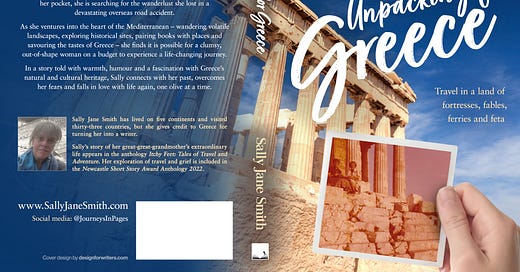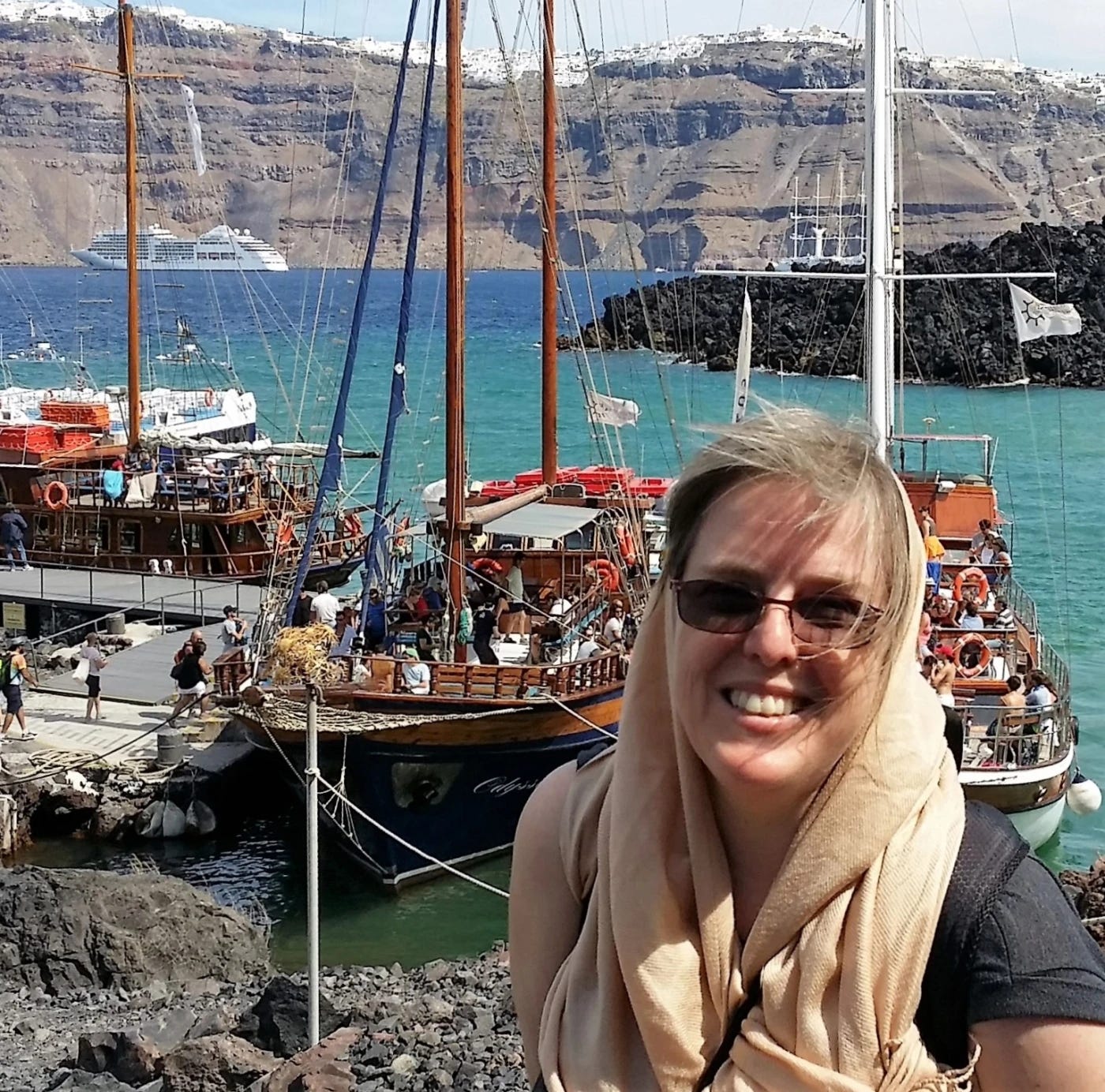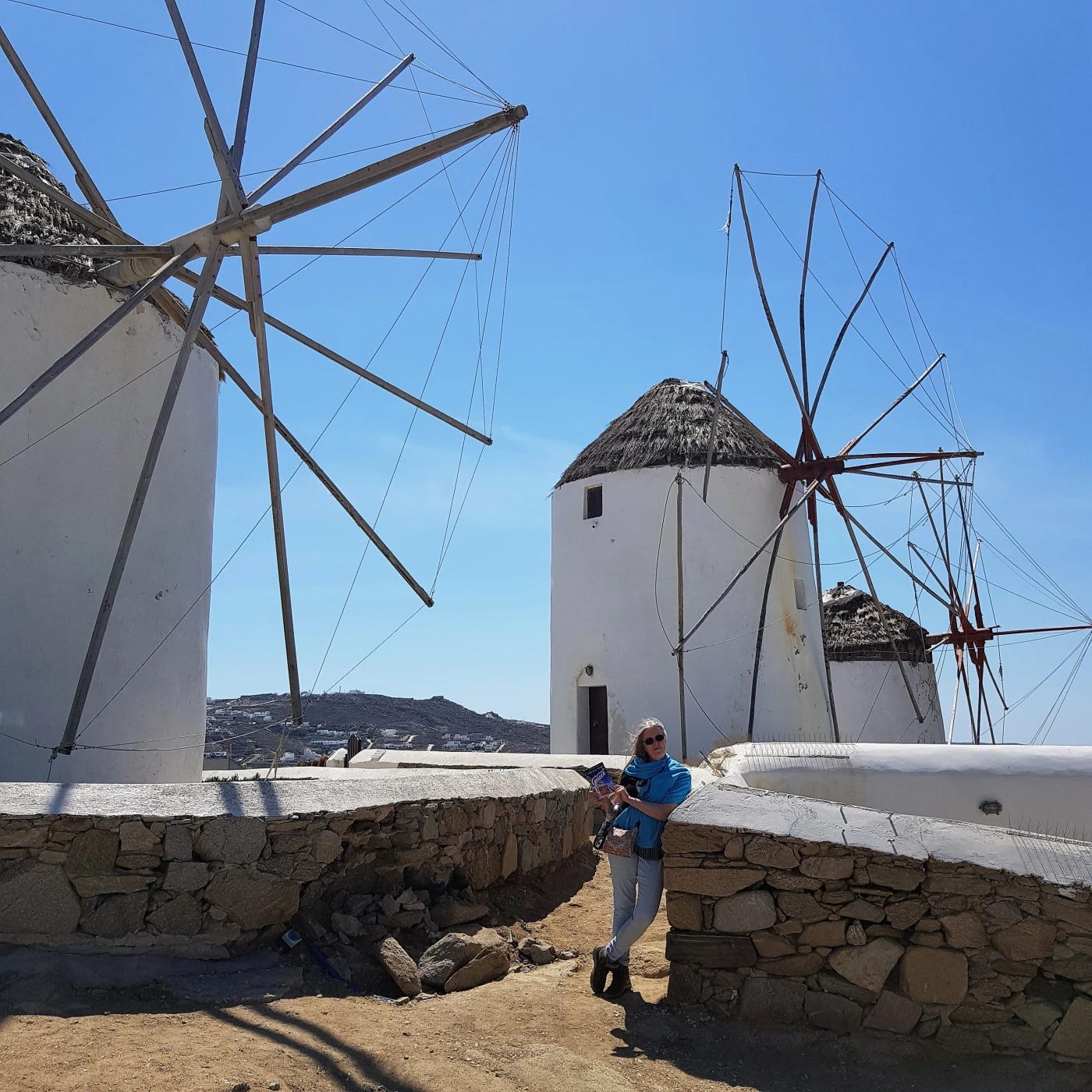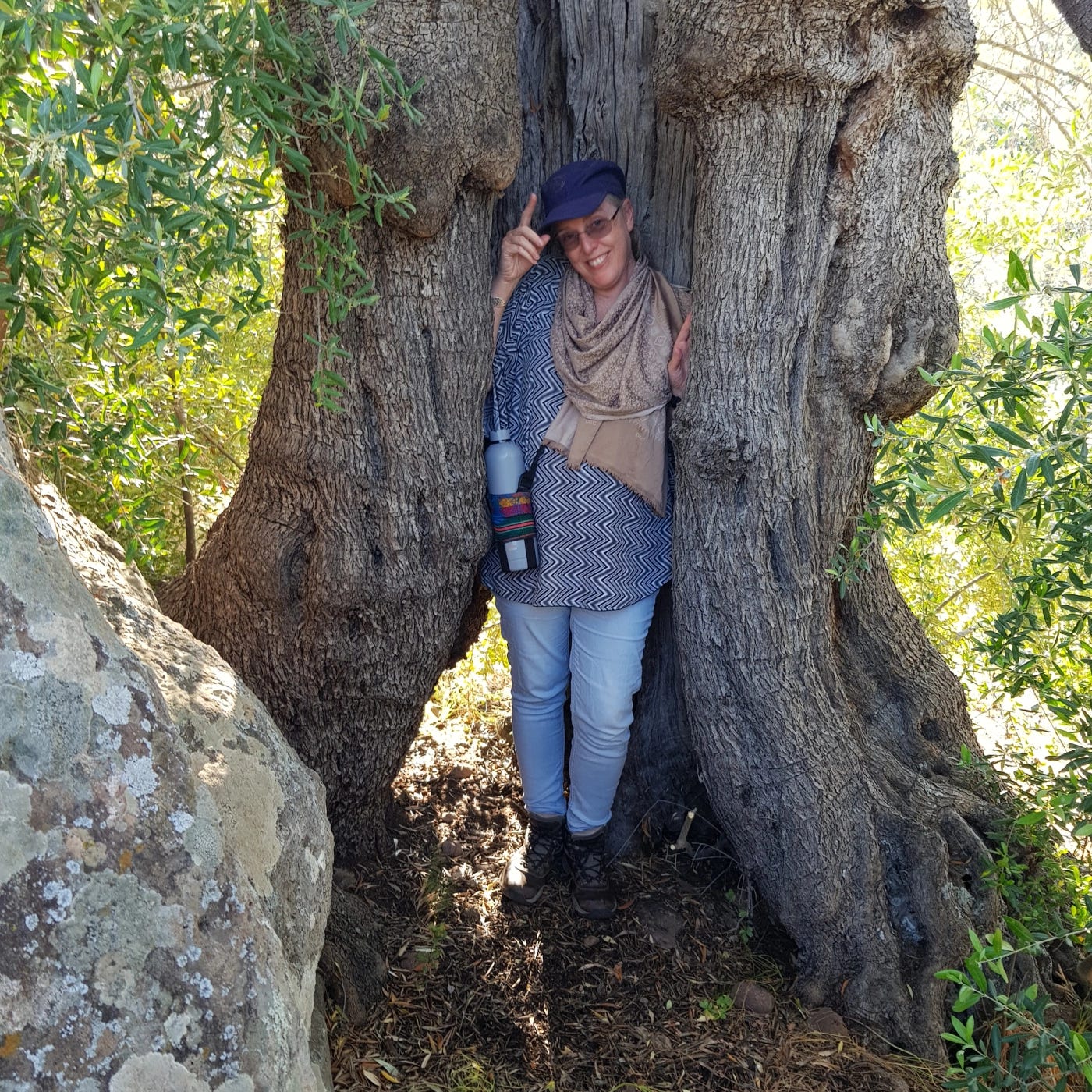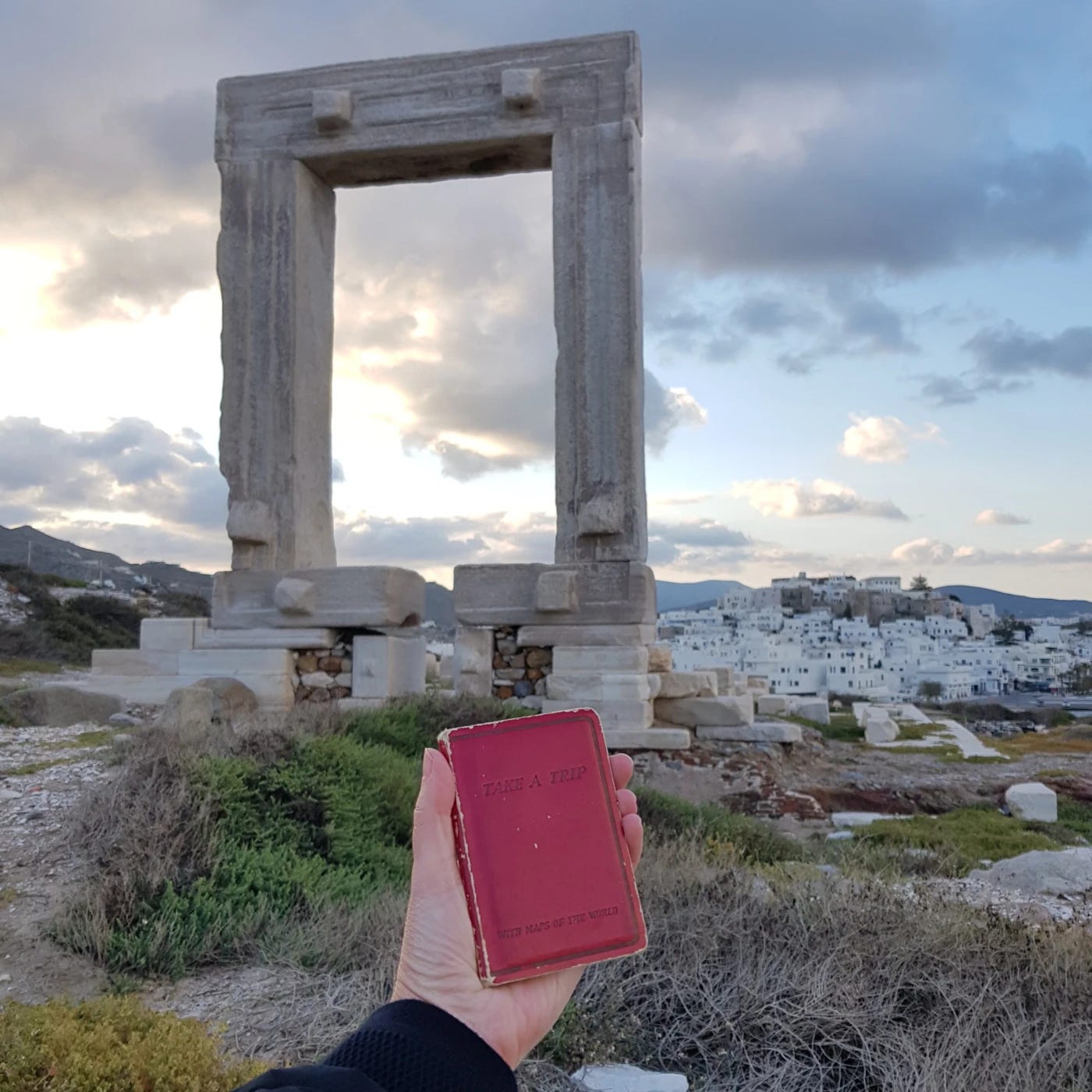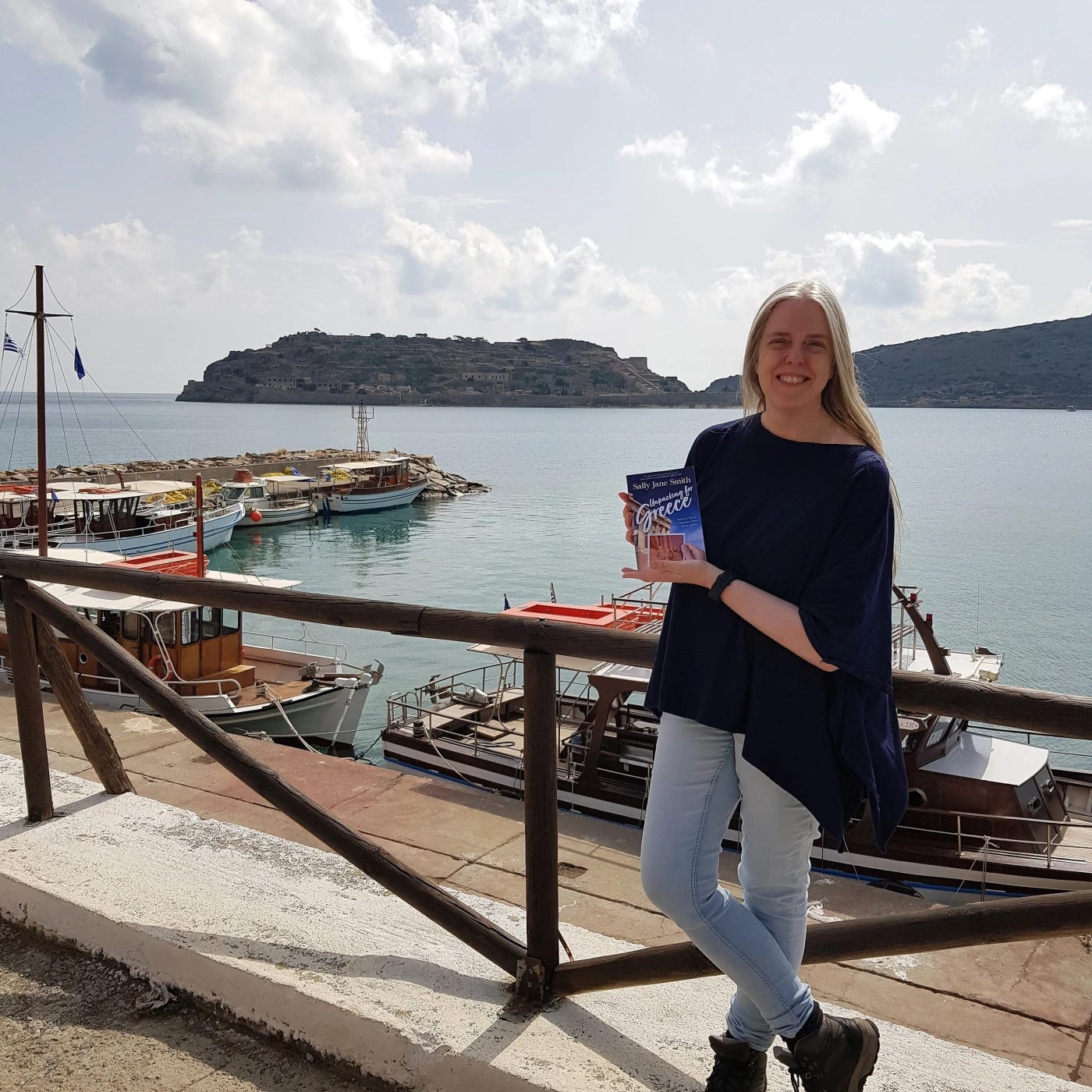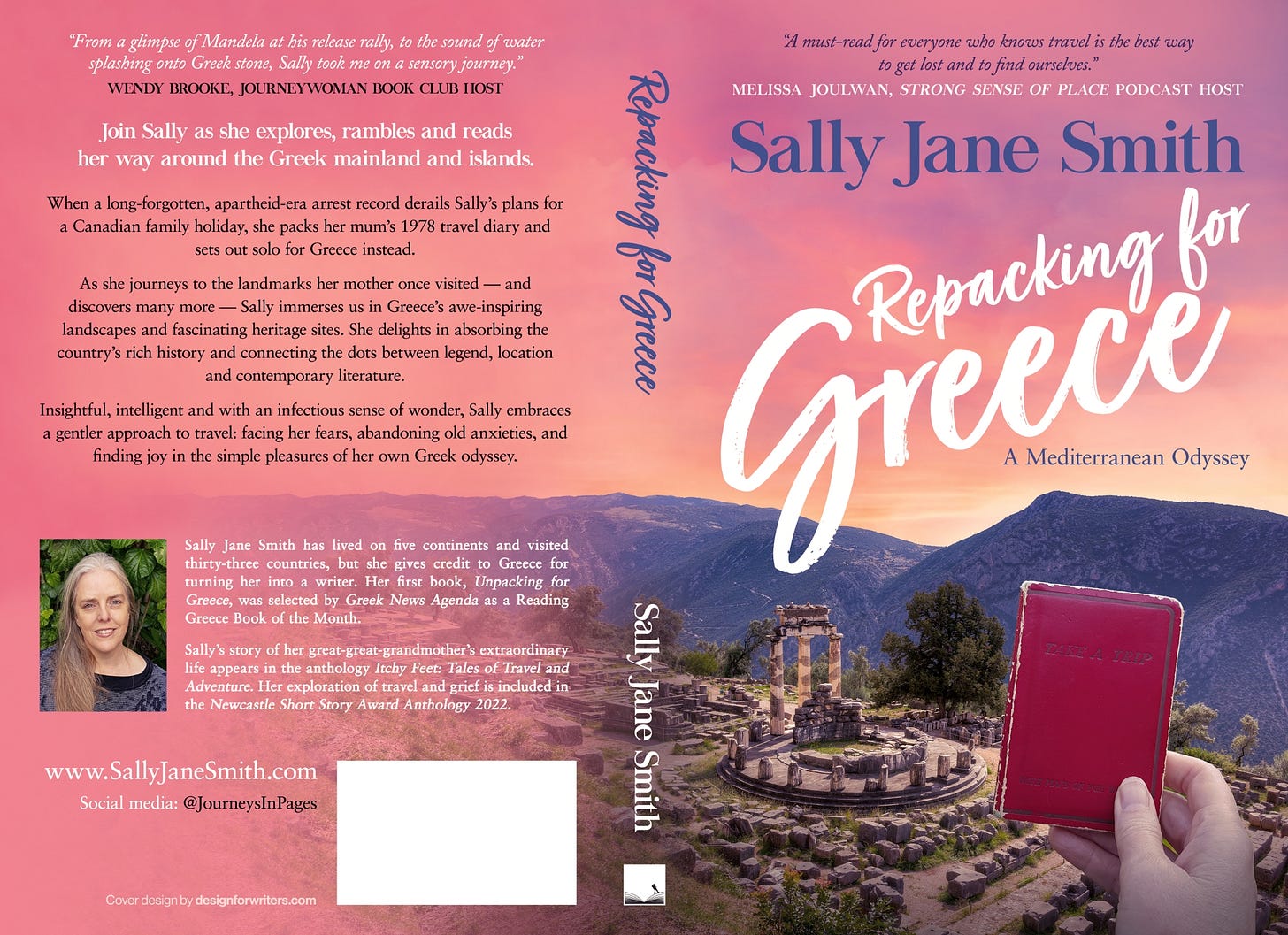We’ve recently been reading a wonderful travel book about Greece: Unpacking for Greece by Sally Jane Smith. It’s a terrific read, which begins with a tragedy and ends with a triumph.
Just before flying out from Australia for her first visit to Greece, the author’s sister gives her their late mother’s diary, of a journey that she herself made around Greece when Sally Jane was a little girl and which she had completely forgotten about. She tries to learn more about her mother through the rather cryptic diary entries, and visits some of the same spots that her mother did.
We’ll definitely be reading the follow-up, Repacking for Greece, and decided to ask Sally Jane if she would tell us more about the background to the book, and her own love affair with Greece. It’s a long read but a really interesting one.
Buy Unpacking for Greece in the UK here, and in the USA and elsewhere here.
When was your first visit to Greece?
It’s hard to believe, now, but I was already in my mid-forties when I first visited Greece. Since that trip, in the late summer heat of 2016, I’ve returned whenever I could. Because travel from Australia to Europe is a significant investment of both time and money, this isn’t as often as I’d like — but I make up for the lack of frequency by staying up to seven weeks at a time. And I pack as much as I can into each trip, moving around every few days to see as much of the country as possible. So far, I’ve been lucky enough to explore close to thirty unforgettable mainland and island destinations, and I can’t wait until April 2025 when I’ll return to make new Greek memories
.Tell me about the road accident you had, and its impact on your travelling?
On 27th January 2006, I was travelling solo from one Sri Lankan village to another on a public bus, engrossed in the pages of my Lonely Planet guide and completely oblivious to what was going on around me. When our driver tried to overtake another vehicle and collided head-on with a second bus, I never saw it coming.
Instead of an ambulance, a third bus stopped alongside the accident and its passengers carried us into their vehicle to transport us to the nearest town. My injuries were serious enough to warrant twelve days in hospital before flying home with a medical escort, and have left permanent physical damage. More insidious were the mental effects. Without realising it, I shrank from adventurous travel, and the wanderlust that had been such an important part of my identity diminished — until, ten years later, I decided to tackle my fear of roads in Greece.
When did you first decide to visit Greece with your mother’s diary?
I didn’t actually know about my mum’s diary when I booked my tickets to Greece.
I was having a supremely bad day at work and felt a powerful urge to run. As Laura Maya wrote about people taking to travel when times get tough, in her unique travel narrative Tell Them My Name: “It’s not running away. It’s running towards the feelings that remind us it’s wonderful to be alive.”
And that’s exactly what happened to me. It wasn’t simply that I wanted to escape my problems. I needed to run towards the type of travel adventures that had played such a significant role in my youth. I pulled up the UNESCO World Heritage List on my phone and scrolled down the alphabetical list of sites until stopped at G for Greece. Immediately, I knew that was where I needed to go.
At the time, I had no memory that my mother had travelled to Greece when I was seven years old, but my sister Tassin presented me with my mum’s diary a few days before my flight. This tiny journal, with its scuffed red covers and cramped handwriting, became my companion on the journey.
And when did you decide to write a book about it?
This always embarrasses me because it sounds like something out of a bad soap opera: a few weeks after I returned from my 2016 Greek trip, I woke from a dream that I was writing a book about my travels. I joked about it on social media and was overwhelmed by a wave of encouragement from the friends who had followed my Facebook posts during my journey. I flipped open my laptop and began to type, with no idea that the craft and discipline of writing would become as transformational for me as that first Greek adventure had been.
When will we see your third book, Packing for Crete?
The Crete book is still at an early stage: I don’t even have a complete first draft yet. I’m a slow writer — it took eight years to complete the first two books, written in tandem — so I estimate it will be at least three years before Packing for Crete lands on shelves. In the meantime, I send out a free email newsletter, approximately monthly, with mini-essays, travel games and writing news.
And will there be a fourth?
Now, that I don’t know. There’ll be another Greek trip coming up in early 2025, but whether it will deliver a story worth the pages? That remains to be seen. Perhaps I’d better focus on the Crete book for now.
You’ve self-published the books and they’ve had excellent reviews. Do you recommend self-publishing for any of our readers who might have travel memoirs in mind?
I have been so grateful for the attention Unpacking for Greece and Repacking for Greece have received, from book clubs, cultural organisations, the media, and big-name writers like Jeffrey Siger, who I never dreamed would one day read my story! The welcome my work has received from the Greek diaspora has been especially gratifying. The books have reached a far broader audience than I anticipated when I decided to go it alone.
So yes, I would recommend self-publishing as a viable path to getting your story out into the world, but with a couple of important caveats. Writing, publishing and marketing a book are hugely rewarding endeavours. They are also challenging and demanding, often exhausting, and usually expensive. I would recommend that anyone interested in publishing their travel memoirs take it slow, learn about the industry to set realistic expectations, and find communities of readers and writers to keep them grounded.
It’s important to understand that both traditional publishing and self-publishing have their advantages and disadvantages, but writers should also be aware that there are plenty of sharks out there, ready to prey on people who are passionate about telling their stories. The good news is that the writing community is wonderfully supportive, so if a deal seems dodgy (or even if it doesn’t) there are always people you can turn to for advice. Please, please, please talk to multiple authors who thoroughly understand the publishing landscape before you sign anything. Or pay anything.
In case it helps, here is a simplistic overview:
In traditional publishing, the publisher pays the author and, in return, the author gives up control of their work and most of the ongoing income from sales. If the book earns out the advance that the publisher pays you, then you will start to receive royalties, although with some contracts the publisher buys the book outright and you will only receive the agreed fee for the book.
In indie or self-publishing, the author pays for everything but retains full rights and royalties. To bring out a high-quality book, you might legitimately pay hundreds or even thousands of dollars for professional services including editing, cover design and page formatting — but be wary of service providers who make their offering sound more attractive than it really is, especially when it comes to distribution.
A major red flag is when a publishing house expects you to pay a fee (perhaps disguised as an obligation to buy a bulk order of paperbacks upfront) and give up any of your rights or future income. This is often called hybrid publishing and, in most cases, I would recommend steering clear of this option.
Do you have a favourite place in Greece?
So many favourites! But the place I return to again and again is a writers’ retreat named Limnisa, near Methana on the Peloponnese Peninsula. The way my heart lifts as I walk down its garden path, hearing the Aegean Sea wash over the pebbles of its little beach, lets me know I’ve arrived home.
What draws you back to Greece?
What draws all of us back? I’ve never been able to answer that question — all I know is that Greece made me fall in love with my own life again. It brought me peace, and turned me into a writer, and every time I set foot on Greek soil, I feel lighter, happier, more in touch with the joy of being alive.
Buy Repacking for Greece in the UK here, and in the USA and elsewhere here.
Mike and Donna


